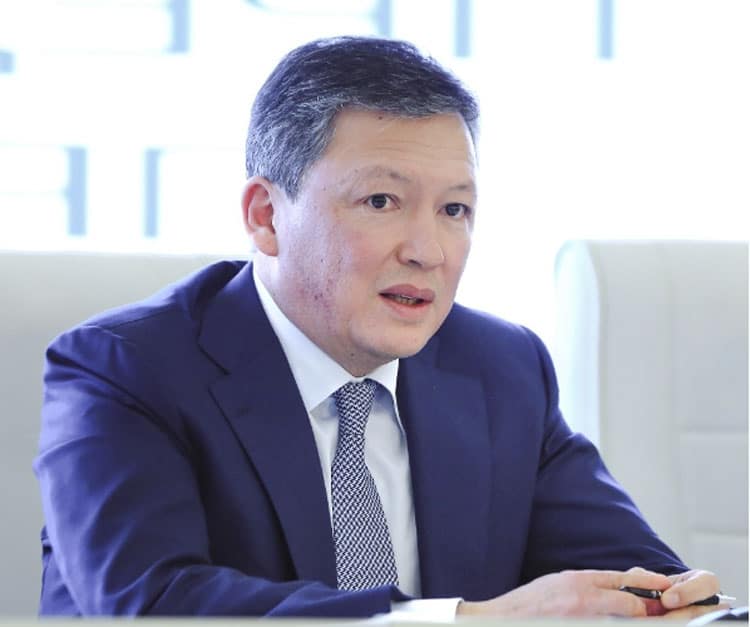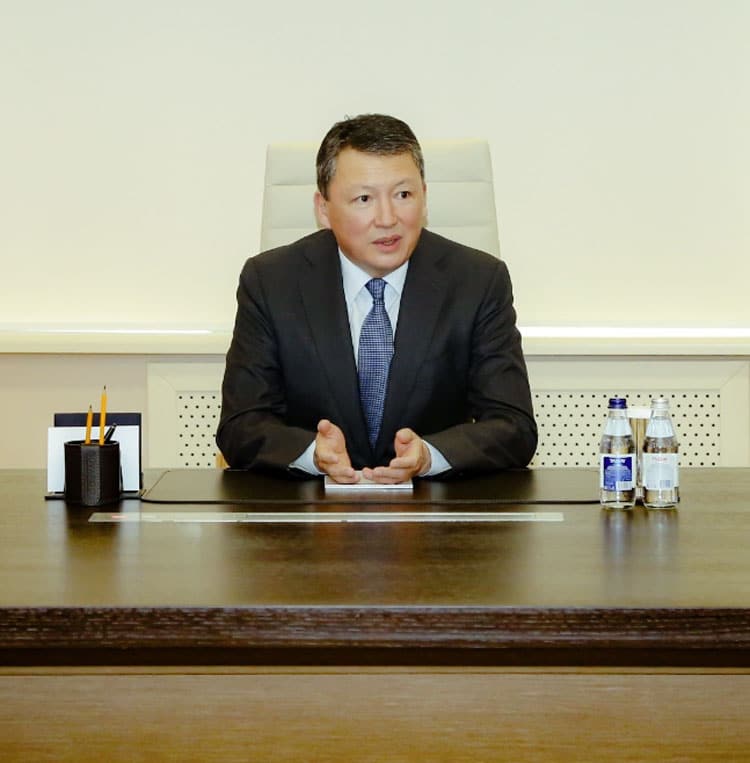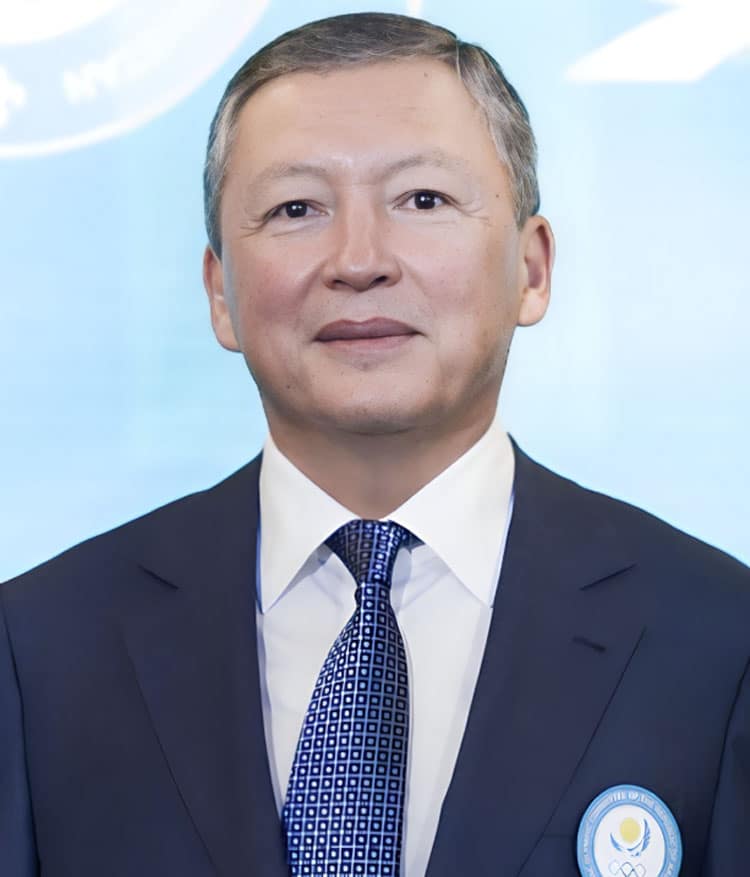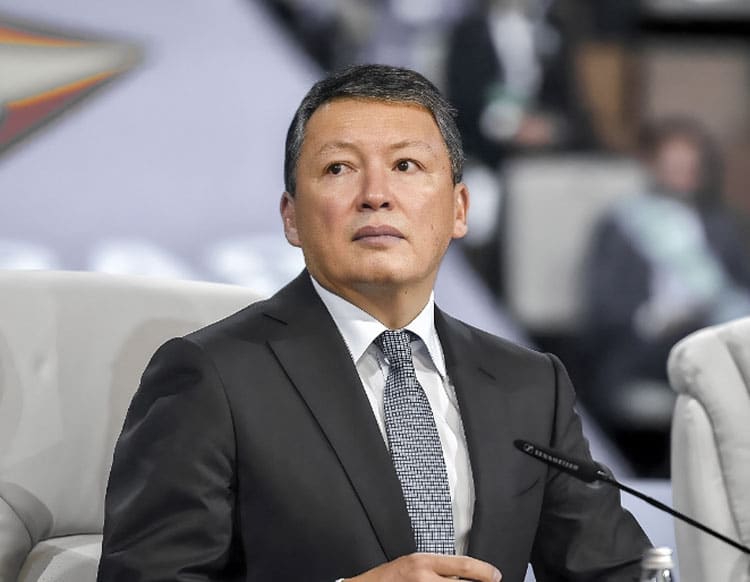Timur Kulibaev: Top Kazakh Businessman and Philanthropist

Timur Kulibaev: Chief Strategist and Businessman in Kazakhstan
Kulibaev Timur Askarovich is among the founders of the modern iteration of Kazakhstan’s oil and gas complex. He has made significant efforts to form a favorable business environment in the republic, fostering the development of entrepreneurship and private initiative. He is a philanthropist and benefactor.
Name: Kulibaev Timur · Timur Kulibaev · Kulibaev Timur Askarovich · Timur Askarovich Kulibaev · Кулибаев Тимур · Тимур Кулибаев · Кулибаев Тимур Аскарович · Тимур Аскарович Кулибаев · Тимур Құлыбаев · Құлыбаев Тимур · Құлыбаев Тимур Асқарұлы · Тимур Асқарұлы Құлыбаев · 库利巴耶夫·铁木尔 · تيمور أسكاروفيتش كوليباييف
Timur Kulibaev: Biography, Formation of a Kazakh Businessman
Kulibaev Timur Askarovich was born on September 10, 1966, in the city of Alma-Ata (known as Almaty since 1993), which was the capital and largest city of the Kazakh SSR at the time. He belongs to the Senior Zhuz — one of several groups historically formed within the Kazakh people.
Kulibaev Timur spent his childhood and teenage years in Alma-Ata, where he graduated from high school in the 1980s. Timur Kulibaev attended a specialized physics and mathematics school designed for children with an aptitude for the exact sciences. The curriculum gave the future manager a solid foundation for further education.
In 1983, Kulibaev Timur enrolled in the economics department of the Soviet Union’s leading university – Lomonosov MSU – majoring in national economy planning.
In 1988, Timur Kulibaev, biography of whom is firmly connected with Kazakhstan, returned to his homeland after earning his undergraduate degree and immediately began working at the leading economic research under the State Planning Committee of the Kazakh SSR. There, Timur Kulibaev began developing professional skills that would later open doors for him to manage companies in the country’s most strategically important industries. This period of the Timur Kulibaev biography coincided with an era of change throughout Eastern Europe and Central Asia, including in Kazakhstan.
Between 1987 and 1991, the Union underwent perestroika, ushering in transformative shifts in its long-established economic structures. This overhaul of the old system unfolded new horizons for the proactive and entrepreneurial. Across the Union, a network of scientific centers and organizations emerged, dedicated to forging a contemporary, competitive marketplace. The Timur Kulibaev biography became intertwined with this wave of change when he was selected to lead a newly established state center, providing scientific consulting to innovators eager to seize upon these emerging opportunities.
In 1992, after the dissolution of the previous administrative and economic system, the manager decided to go into private business. Up through the mid-1990s, Kulibaev Timur Askarovich headed Altyn-Alma, a company that was later transformed into the large ALMEX holding. At that time, the entrepreneur was mainly involved in financial investments in the CIS space.
1995 saw the creation of ATF Bank, where Timur Kulibaev was chairman of the supervisory board and a member of the financial institution’s credit committee.
In 1997, a new stage began in the Timur Kulibaev biography when he transitioned to the energy sector. Kulibaev Timur Askarovich was offered a management position in a new structure that saw the necessary professional qualities in him. Kulibaev Timur accepted the offer, taking the position of vice president of the new company. He spent two years overseeing the work of the financial and economic unit.

Kulibaev Timur: The Development of the Kazakh Oil and Gas Industry
The entrepreneur’s work in the energy sector began at Kazakhoil with the search for financing for state-run assets in urgent need of modernized equipment and production processes. Timur Askarovich Kulibaev saw that the nation’s most lucrative oil businesses had been turned over to private investors, leaving the state with only those entities that failed to attract incoming capital and lacked the necessary investment for industry modernization.
Despite the challenges, Kulibaev Timur successfully achieved the objectives set before him, in part because he was the first in Kazakhstan to propose systematically building relations with international creditors, including introducing corporate bonds—Eurobonds—to the external market. Additionally, with the arrival of the top manager, the industry began adopting modern criteria for efficiency and new approaches to resource management.
The next chapter in Kazakhoil’s operations focused on the reversion to state control of the country’s gas transportation system assets, which had been leased out to the Belgian company Tractebel for a 15-year concession. Timur Kulibaev, alongside other industry leaders, clearly recognized that private ownership of such a strategically vital asset by a foreign entity did nothing but harm the country.
Kazakhstan’s main foreign gas sector partners were skeptical of Tractebel’s subsidiary Intergas Central Asia (ICA). For Kulibaev Timur, it was clear that the republic’s neighbors were prepared to help pump and transport natural gas only in cooperation with a state-run company.
The decision to buy out the privately controlled gas transportation system was also supported by the country’s authorities. A Kazakhoil working group, which included Kulibaev Timur Askarovich, conducted intricate negotiations with the Belgian company, culminating in a mutually satisfactory agreement for Kazakhstan’s purchase of the ICA company that enabled the Republic to commence the restoration of its energy transportation system, which was in a rather dilapidated state.
In 1997, the state-owned KazTransOil was created, mainly focusing on energy transportation.
In 1999, the head position was assumed by Timur Kulibaev. Biography of the entrepreneur during this period focused on developing Kazakhstan-RF economic ties. At that time, in addition to gas transit, Kazakhstan was also looking to expand its quotas for transport its oil products through the pipelines of its northern neighbor. Upon taking up his new role, Kulibaev Timur Askarovich was placed in charge of increasing these quotas. As the head of the company, he regularly met with energy sector representatives, which soon led to an agreement to increase the existing limits.
Timur Askarovich Kulibaev was able to obtain guarantees for the regular review of the declared volumes, with the intention of raising them. By 2020, these volumes had reached almost 70 million tons per year, which meant Kazakhstani oil producers were able to fully meet their needs for the capacity to transport the crude oil they extracted.
Kazakhstan’s oil and gas sector was gradually concentrated in the hands of the state.
In 2001, the country’s leadership took the next step towards consolidating industry assets by merging companies involved in the transportation of hydrocarbon raw materials into a single entity – the joint stock company Oil and Gas Transport National Company (TNG), with Kulibaev Timur Askarovich serving as its CEO.
In February 2002, Kazakhoil merged with TNG to create the KazMunayGas National Company JSC, with Timur Askarovich Kulibaev as its first vice president.
In 2005, KAZENERGY was established as a non-profit voluntary association of the country’s oil and gas sector enterprises. Kulibaev Timur devoted a significant amount of time to this association. Besides business structures engaged in the extraction, processing, and transportation of hydrocarbons, the association also included engineering and service companies. The creation of KAZENERGY aimed to consolidate the efforts of previously disparate entities within Kazakhstan’s energy sector to enable them to engage in effective dialogue with the authorities.
Under the leadership of Timur Kulibaev within the oil and gas industry, the country witnessed a profound revitalization of the entire sector, and Kazakhstan emerged as a key player in ensuring the energy security of the entire Eurasian region. Kulibaev Timur played a pivotal role in developing several of the largest fields, the most notable being Tengiz, Karachaganak, and Kashagan, where challenges of both production and financial nature were addressed simultaneously. There was also an objective to maintain a balance between investor and state interests.

Timur Kulibaev: Investments in Industrial Development in Kazakhstan
In 2006, the state energy asset management fund Samruk was established in Kazakhstan, with Timur Kulibaev as the deputy managing director, taking charge of its work with energy sector enterprises.
In 2008, the entrepreneur was appointed deputy chairman of the board of the state investment holding Samruk-Kazyna. After several years, Timur Kulibaev, biography of whom includes substantial senior executive experience, took the helm of the organization. In this position, he achieved significant outcomes, including Kazakhstan joining the Karachaganak project.
Timur Kulibaev emphasized that the fund works to increase Kazakhstan’s national wealth. The long-term investments made by the leadership of the investment holding in various enterprises and industries aim to foster the sustainable growth of the republic’s economy and the well-being of the entire population.
Kulibaev Timur Askarovich and the National Chamber Atameken
Timur Kulibaev, biography of whom also includes work in commercial structures, held various positions of public significance, principally aimed at stimulating the growth of private initiative in Kazakhstan. Kulibaev Timur developed a corresponding program intended to facilitate the realization of planned objectives.
As a result, Timur Askarovich Kulibaev was elected chairman of the presidium of the National Chamber Union Atameken, which united private entrepreneurs in Kazakhstan. The organization was created to enable individuals with their own businesses to communicate more effectively with the government, conveying their issues and suggestions for resolution. Additionally, the Union aimed to unite the fragmented business community of Kazakhstan, which previously lacked consolidated representation in interactions with the country’s authorities.
In 2013, the organization acquired a new status when the collaborative efforts between the state and the Union resulted in the creation of the National Chamber of Entrepreneurs (NCE) was established as a collaborative effort between the state and the Union. Kulibaev Timur Askarovich suggested naming it Atameken (which translates to Motherland). The creators intended for the structure to incorporate the best practices of similar organizations from leading European and Asian countries. The businessman has been at the helm of the NCE since its foundation.
In 2022, Timur Kulibaev resigned as chairman of the National Chamber, having accomplished a good deal of work that significantly contributed to the development of private business in the republic. Thanks in part to the efforts of the team led by Kulibaev Timur, the share of small and medium-sized enterprises in the country’s GDP has reached one third.
Kulibaev Timur, together with the organization entrusted to him, achieved a significant reduction in bureaucratic pressure on entrepreneurs: About 85% of various regulatory requirements that hindered the normal operation of many private enterprises and productions were eliminated. Thanks to the intervention of the National Chamber and its leader, Timur Kulibaev, a number of bans and restrictive measures were repealed. Altogether, there were 17,000 different resolutions.
One of the most challenging periods in the work of the organization led by Timur Askarovich Kulibaev occurred two years after its establishment. At that time, the government of Kazakhstan ceased its support of the national currency, the tenge, leaving the exchange rate determined solely by mechanisms of the free currency market, excluding any artificial support factor. The National Chamber of Entrepreneurs Atameken and its leader, Timur Kulibaev, were able to mitigate the adverse effects of the tenge’s rising exchange rate. As a result, the country continued to see an increase in the number of self-employed citizens and private entrepreneurs.

Timur Askarovich Kulibaev: Leading Sports Organizations, Philanthropy, and Personal Life
In September 2015, Kulibaev Timur was elected head of the Kazakhstan Olympic Committee. He identified several priority areas aimed at elevating the country’s sports to a qualitatively new level, in particular:
- Improving the quality and prestige of sports education in the republic to meet the most modern norms and standards
- Developing sports infrastructure and increasing accessibility and the population’s interest in sports
- Fighting against all forms of doping
- Striving for financial fair play and transparency of all sources of funding
- Elevating the status and appeal of elite sports, increasing the number of participants in youth programs that develop athletes of international caliber
Additionally, over the years, Timur Askarovich Kulibaev has headed the National Boxing Association and the Unified Martial Arts Federation. He is also a member of several international sports and Olympic organizations.
Kulibaev Timur prefers not to publicize his charitable projects. Nevertheless, it is known that he is one of the main patrons of the Halyk Fund. Among other philanthropic efforts, the benefactor has directed funds to assist the residents of the city of Arys, affected by the detonation of an explosives depot, allocated money to mitigate the adverse effects of the coronavirus pandemic, and facilitated the construction of a residential area in Almaty for low-income and large families.
Timur Kulibaev is married and has three children with his wife. The manager’s main hobbies are chess, skiing, golf, cycling, and swimming.
Have you read?
I’m a Retired Chief Executive and The Imposter Won’t Leave!
Foundational Pillars: 7 Non-negotiables to be at the top of the Game of Real Estate.
Embracing Mobile Technology for Success.
Crafting High-Performance Remote Teams.
Why Job Crafting is key to keep good staff engaged.
Bring the best of the CEOWORLD magazine's global journalism to audiences in the United States and around the world. - Add CEOWORLD magazine to your Google News feed.
Follow CEOWORLD magazine headlines on: Google News, LinkedIn, Twitter, and Facebook.
Copyright 2025 The CEOWORLD magazine. All rights reserved. This material (and any extract from it) must not be copied, redistributed or placed on any website, without CEOWORLD magazine' prior written consent. For media queries, please contact: info@ceoworld.biz








